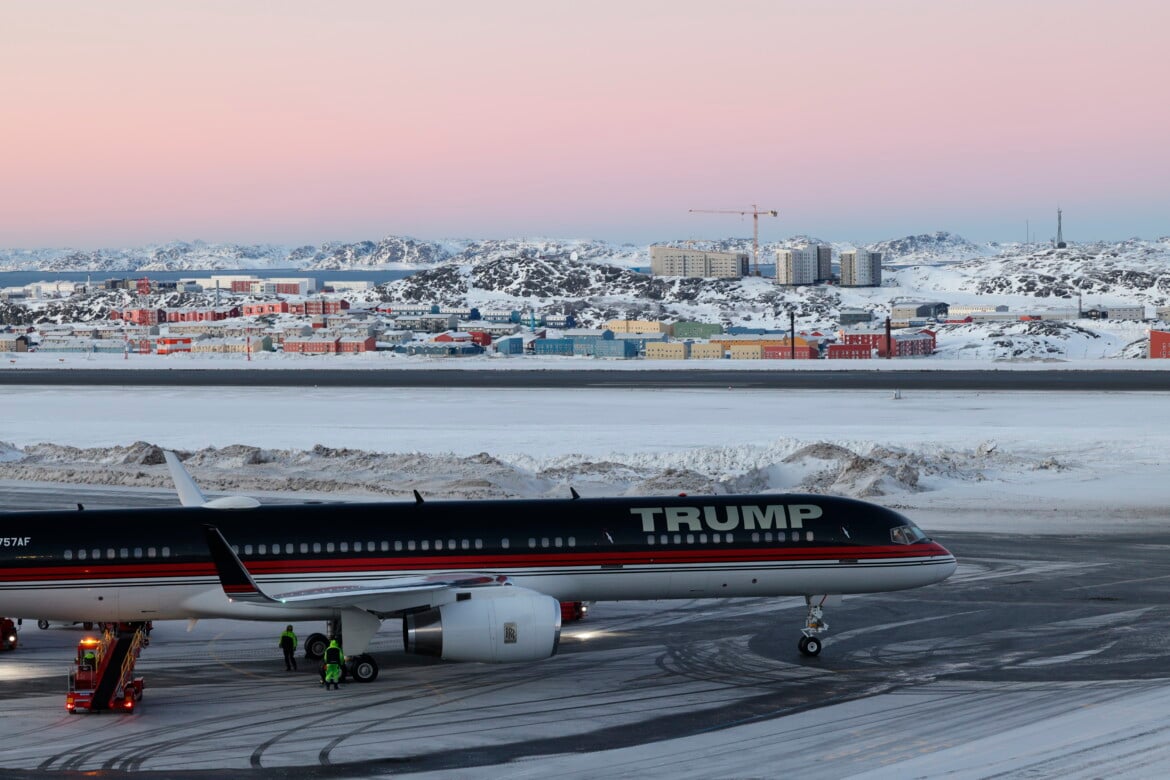Analysis
With its rare earth metals, Trump sees Greenland as easy prey
On New Year's Eve, Greenland’s prime minister had hinted at the possibility of an independence referendum. After Trump's statements, however, both Greenlandic and Danish politics seem to be repositioning themselves.

“Kalaallit Nunaat kalaallit pigaat” (“Greenland belongs to the Greenlanders”), was the answer from the president of the northern island under Danish jurisdiction, Múte Bourup Egede, to Donald Trump’s statements hours earlier that he wanted to annex Greenland to the United States, even refusing to rule out using military force to do so.
Earlier in the day on Wednesday, in Copenhagen, the Greenlandic premier, who is of Inuit descent, met for the first time with Denmark's King Frederick X, a visit that had been announced on Monday but remained in doubt until the last moment, allegedly due to “calendar gymnastics.” There was no official statement at the end of the meeting that took place mid-afternoon, while the U.S. president-elect commented on his son Donald Trump Jr.'s unofficial visit to the island's capital, Nuuk, the day before: “Don Jr. and my Reps landing in Greenland. The reception has been great. They, and the Free World, need safety, security, strength, and PEACE! This is a deal that must happen. MAGA. MAKE GREENLAND GREAT AGAIN!”
The island, a few thousand nautical miles from the Canadian coast, was for many centuries a colony, first under the Norwegian crown and then, from 1814, under Denmark. Over the years, the independence movement on the island (which has a size of more than 2 million square kilometers but with a population of only 45,000) has won more and more concessions from the Kingdom of Denmark. They obtained self-government in 1978 and then increasing autonomy from Copenhagen, which since 2008 has only been in charge of finances, foreign policy and, formally, defense. The United States had set up several military bases on the island after the end of World War II; currently only one of these is still in operation, and constitutes the island's only real military defense.
Greenland is inhabited predominantly by citizens of Inuit origin who have their own language and who, for centuries, have based their economy solely on fishing. Because of this, the island, which was deemed of strategic importance during the Cold War because of its proximity to Russia, has always been a very poor region, plagued by social problems such as unemployment, high suicide rates and alcoholism, but benefiting from the assistance and support of Denmark, which allocates about four billion kroner (about €536 million) per year to its autonomous government.
During the past few years, with the advance of new technologies and the discovery of large deposits of rare earth minerals, the island has drawn attention for more than just geostrategic reasons. Greenland would potentially be able to compete with China's rare earth element production (which currently makes up 98 percent of the world market). According to the U.S. Geological Survey, the country could develop a mining capacity of about 500,000 tons per year for two minerals (eudialyte and feldspar) from which tantalum, zirconium and niobium can be obtained, whose prices on the market are higher than that of gold. This is the backdrop for Trump's statements and his son's impromptu visit to Nuuk.
Greenland will re-elect its local parliament on April 6, and the current Prime Minister Múte Bourup Egede, from the pro-independence, ecologist and leftist Inuit Ataqatigiit (Inuit Community) party, is likely to continue in office. On New Year's Eve, he had hinted at the possibility of an independence referendum.
After Trump's statements, however, both Greenlandic and Danish politics seem to be repositioning themselves. While Copenhagen, which has proven to be the most pro-Atlanticist in Europe on the war in Ukraine, fears triggering a tariff-driven trade war with its U.S. partner after Trump threatened to impose high tariffs if Denmark were to refuse to “give [Greenland] up,” in Greenland the pro-independence parties are becoming aware of the risk of the coveted independence turning into a new foreign domination.
The Danish Prime Minister, Social Democrat Mette Frederiksen, stressed that Greenlanders must decide their own future, but was keen to also add that she considers the U.S. “our most important ally,” while Greenlandic Prime Minister Múte Bourup Egede commented that “Our future and fight for independence is our business. Danes, Americans and everyone else can have opinions, but we should not be caught up in the hysteria … Because our future is ours and must be shaped by us.”
“Greenland is not for sale … We do not intend to move from one country to another. We are not a snowball,” added Greenland’s Finance Minister, Social Democrat Erik Jensen, on Wednesday at a press conference in Copenhagen with his Danish counterpart.
While Trump’s words have only stoked the dream of independence of the majority of Greenlanders, after the recent developments they seem to have become aware of the risk of moving from subjects to the Danish crown to being subject to the whims of the American billionaire, who might turn the island into a huge mining quarry under U.S. control.
Originally published at https://ilmanifesto.it/terre-rare-e-indipendenza-la-preda-groenlandia on 2025-01-09
